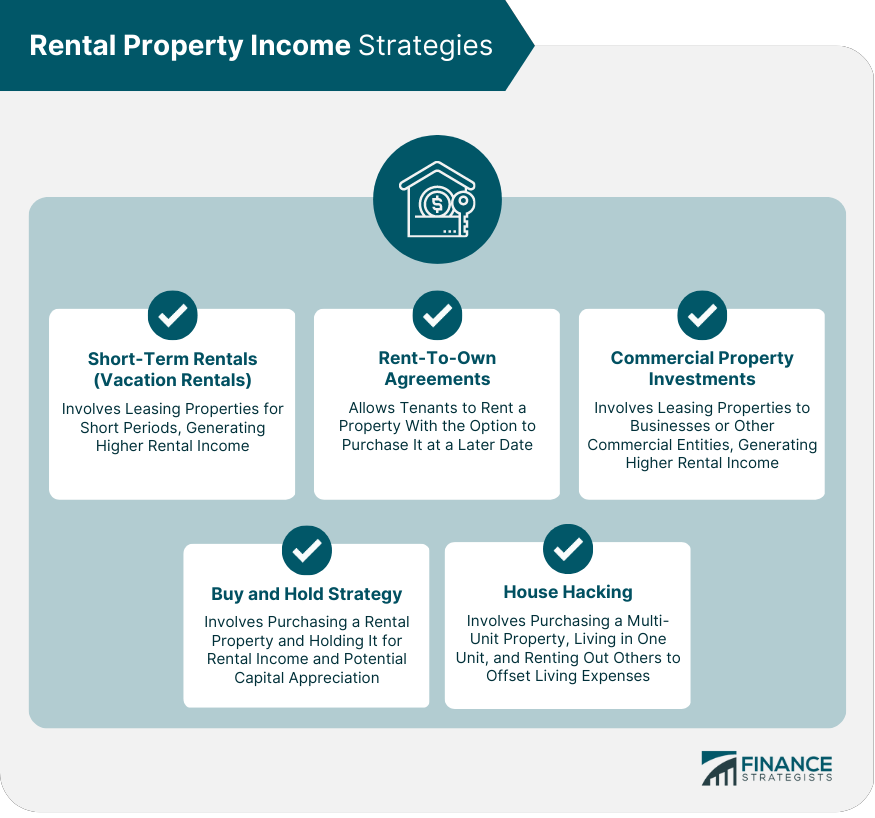Are you looking to boost your income without taking on a second job? Rental income investment might just be the perfect solution for you.
Imagine earning a steady stream of cash each month while letting your property do the heavy lifting. Sounds appealing, right? But before diving in, it’s crucial to understand the strategies that can maximize your returns and minimize your risks. You’ll discover smart, proven tactics that can turn your investment into a profitable venture.
Whether you’re a newbie or a seasoned investor, these insights will equip you with the knowledge to make informed decisions. Ready to transform your financial future? Keep reading to unlock the secrets of successful rental income investments.

Identifying Profitable Properties
Locationis key in finding good rental properties. Choose areas near schools, shops, and transport. These places attract more renters. Look for safe neighborhoods. Safety is a big factor for families.
Market Trendshelp in understanding property values. Check if prices are rising or falling. Rising prices mean good investment. Falling prices might mean risk. Use online tools to watch market changes.
Choosing the right property typeis vital. Single-family homes are popular. They are easy to manage. Multi-family units bring more income. But they need more care. Know what you can handle.
Financing Options
Traditional mortgages are common for buying rental properties. Banks offer these loans. You need a good credit score. A down payment is also necessary. Interest rates can vary. Fixed rates are stable. Adjustable rates change over time. Loan terms can be 15 or 30 years. Shorter terms mean higher payments. Longer terms have lower payments but more interest. Choose what fits your budget.
Private lending is another choice. Individuals or companies lend money. They may have fewer rules. Interest rates can be higher. Terms might be flexible. It’s good for quick buys. Collateral may be needed. It’s often faster than banks. Make sure to read all terms. Understand the risks before you agree.
Crowdfunding lets many people invest. Online platforms help with this. Each person gives a small amount. Together, it can fund a property. Investors share profits. It’s less risky than going alone. You don’t need much money upfront. Research the platform first. Check for fees and rules. It’s a modern way to invest.
Effective Property Management
Boost rental income with smart strategies in property management. Focus on tenant selection and maintaining property condition. Keep track of expenses and regularly review market trends for better returns.
Tenant Screening
Choosing the right tenant is key. It keeps your property safe. Always check references and credit scores. Meet potential tenants in person. This helps in understanding their behavior. Verify their employment status. Ensure they can pay rent on time. It’s important to protect your investment.
Maintenance Strategies
Regular maintenance saves money. Inspect property often. Fix small issues quickly. This prevents bigger problems. Keep a list of trusted contractors. They help with repairs. Schedule seasonal checks. This ensures everything works well. Happy tenants stay longer. It boosts your rental income.
Lease Agreements
A strong lease agreement is vital. It outlines tenant responsibilities. It protects both parties. Include details about rent payment. Specify late fees. State rules about property use. Keep it clear and simple. This avoids confusion. Review it with tenants. It ensures they understand.

Maximizing Rental Income
Competitive rentattracts renters quickly. Too high, and people stay away. Research nearby rental prices. Find the average. Set your rent close to that number. This way, your property stays occupied. More people will want to stay at your place.
Simple changes can make big differences. New paint, clean carpets, and updated kitchens attract tenants. These upgrades can increase rental value. Spend money wisely. Think about what renters want. Happy renters stay longer. Your income becomes steady and reliable.
Owning different types of properties is smart. Not all renters like the same thing. Some want big houses. Others need small apartments. Having both can increase your rental income. If one market slows, others might be strong. This keeps your income balanced and safe.
Tax Considerations
Owners can claim deductions on rental properties. These include costs for repairs and maintenance. Depreciation helps spread the cost of a property over years. This reduces taxable income. Keep track of all expenses to maximize deductions.
Good record keeping is essential. Save all receipts and documents. This includes rent payments and repair bills. Use a simple filing system. It helps during tax time. Accurate records prevent mistakes and ensure compliance.
Smart tax planning can save money. Understand tax brackets and plan accordingly. Consider hiring a tax professional. They provide advice and help with strategies. Review your tax situation yearly. Make adjustments as needed.

Risk Management
Insurance policiesprotect investments. They cover damages like fire or storms. Choose the right policy for your property type. Some policies cover tenant injuries. Others protect against theft or vandalism. Compare options to find the best fit. Paying for insurance can save money later. Insurance gives peace of mind.
Vacancy risksaffect rental income. Empty houses mean no rent. Screen tenants carefully. Find good people who pay on time. Offer competitive rent prices. Keep properties well-maintained. Happy tenants stay longer. Advertise vacancies online. Use social media to reach more people. Reduce vacancy times and increase profits.
Legal complianceis crucial. Follow laws for rentals. Know tenant rights and owner duties. Stay updated on legal changes. Use leases to set rules. Protect yourself and tenants. Hire a lawyer if needed. Avoid fines or legal troubles. Being compliant keeps business smooth.
Emerging Market Opportunities
Rental income investment strategies present exciting possibilities in emerging markets. These opportunities offer potential for steady income and portfolio diversification. Investors can explore diverse property options to maximize returns.
Short-term Rentals
Short-term rentals are gaining popularity in many regions. Tourists love the flexibility they offer. City centers and vacation spots are ideal locations. Investors can earn good profits quickly. Online platforms make renting simple. Hosts can manage bookings and payments easily. This market is growing fast.
Green Building Initiatives
Green buildings are important for the environment. They use less energy and water. This saves money in the long run. Eco-friendly materials are popular now. Tenants prefer healthy living spaces. Investors can benefit from tax incentives. Green buildings attract high-quality tenants.
Technology-driven Investments
Technology is changing rental strategies. Smart homes are becoming common. They offer security and convenience. Tenants enjoy controlling devices with apps. Automated systems reduce maintenance work. Data analysis helps in understanding market trends. Investors can make informed choices. Technology creates new opportunities.
Frequently Asked Questions
What Are The Benefits Of Rental Income Investment?
Rental income provides a steady cash flow, diversifies investment portfolios, and offers potential tax benefits. Real estate often appreciates over time, enhancing wealth. It can also hedge against inflation. These factors make rental income investment a popular choice among investors seeking long-term financial stability and growth.
How Do I Start Investing In Rental Properties?
Begin by researching the real estate market and assessing your financial situation. Secure financing, set a budget, and choose a desirable location. Conduct property inspections and analyze potential returns. Consider working with a real estate agent or investment consultant to streamline the process and make informed decisions.
What Risks Are Involved In Rental Property Investment?
Rental property investment involves risks like vacancies, property damage, and fluctuating market conditions. Unexpected repairs and maintenance costs can also impact returns. It’s crucial to conduct thorough research, choose properties wisely, and maintain a financial cushion. Proper risk management and strategic planning can help mitigate these challenges.
How Can I Maximize Rental Income Returns?
To maximize returns, choose properties in high-demand areas and maintain them well. Set competitive rental prices and screen tenants thoroughly. Consider offering amenities to attract quality tenants. Regularly review market conditions and adjust rental prices accordingly. Efficient property management is key to maximizing rental income returns.
Conclusion
Investing in rental properties offers steady income. Choose locations wisely for success. Research markets and understand trends. Consider property management to ease burdens. Diversify your investments to reduce risks. Monitor financials closely to ensure profitability. Regularly assess rental pricing for competitiveness.
Stay informed on local regulations and changes. Build good relations with tenants for stability. Rental income can be rewarding. With smart strategies, it grows effectively. Keep learning and adapting to market shifts. By doing so, you secure a promising future in real estate investments.
